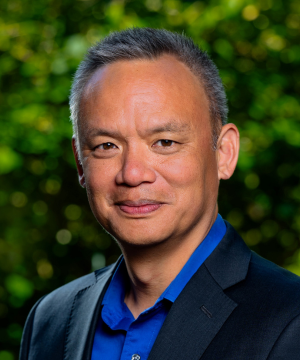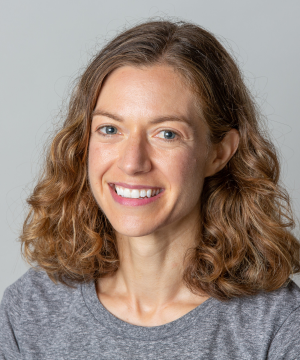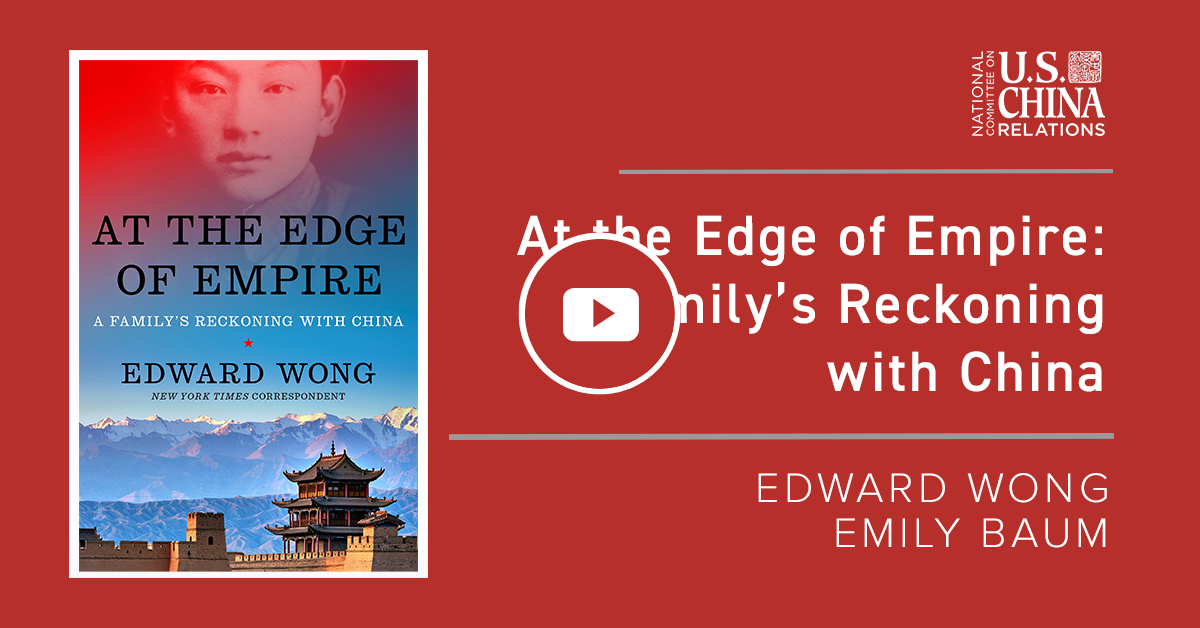Friday, July 19, 2024 | 9:00 AM EDT
As a child of Chinese immigrants in the United States, Edward Wong grew up knowing little about his father’s past. His father grew up during the Japanese occupation of Hong Kong during World War II and the Communist revolution. Believing in the promise of a powerful China, he joined the People’s Liberation Army, serving in Manchuria during the Korean War and later in Xinjiang. In 1962, disillusioned with the Communist Party, he fled to Hong Kong.
When Edward Wong became the Beijing bureau chief for The New York Times in 2008, he explored his father’s past while reporting on the new dream of a resurgent China. Following his father as a correspondent rather than a soldier, he witnessed ethnic struggles in Xinjiang and Tibet and pro-democracy protests in Hong Kong.
In an interview conducted on July 19, 2024, Edward Wong, in conversation with Emily Baum, weaves together the stories of his family and of China during decades of sweeping change.
Speaker

Edward Wong
Edward Wong is a diplomatic correspondent for The New York Times. In 25 years at the Times, he has reported from numerous countries, serving as a war correspondent in Iraq and as the Beijing bureau chief. He is the winner of the Livingston Award for international reporting and was on a team of Pulitzer Prize finalists. He has been a Nieman Fellow at Harvard University and a visiting professor at Princeton University and U.C. Berkeley. He has also done fellowships at the Wilson Center and the Belfer Center at Harvard Kennedy School. Mr. Wong speaks on global issues to television and radio outlets, including CBS, MSNBC, PBS, NPR, and BBC.
He received his BA from the University of Virginia and has joint master’s degrees in journalism and international and area studies from U.C. Berkeley. He studied Mandarin Chinese at the Beijing Language and Culture University, Taiwan University and Middlebury College.
Moderator

Emily Baum
Emily Baum is an associate professor of modern Chinese history at the University of California, Irvine. She is the author of The Invention of Madness: State, Society, and the Insane in Modern China (2018) and is currently completing two books, Needled: How Acupuncture Became Alternative and Uncanny Beliefs: Superstition in Modern Chinese History (forthcoming with Harvard University Asia Center). At UC Irvine, she also directs the Long US-China Institute and serves as an advisor for the Luce-American Council of Learned Societies Program in China Studies.
Dr. Baum received her B.A. from Georgetown University, her MA from Columbia University, and her Ph.D. in Chinese history from the University of California, San Diego. She is a fellow in the National Committee’s Public Intellectuals Program.
